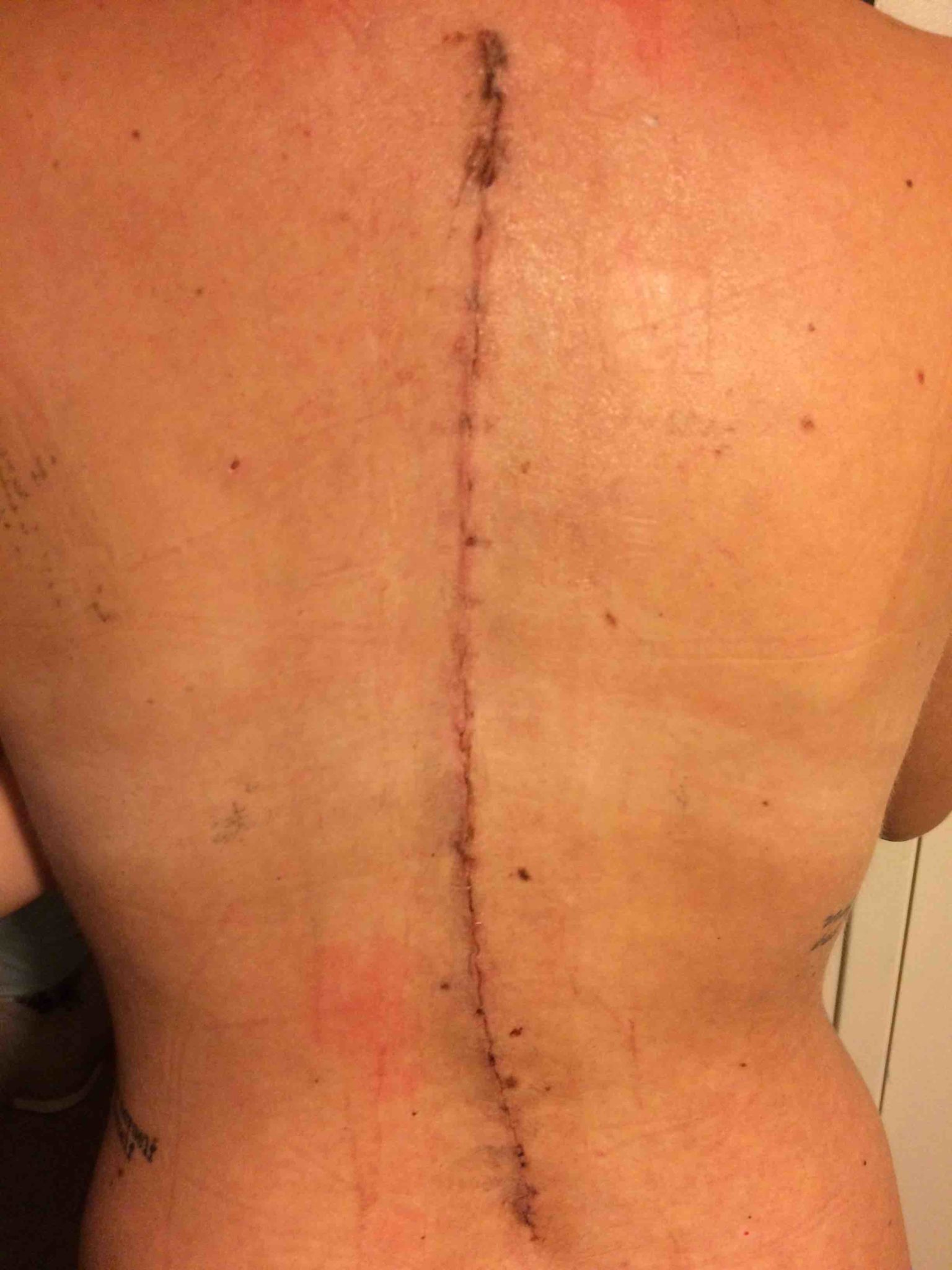Spinal Fusion Surgery in Switzerland
Search and Compare the Best Clinics and Doctors at the Lowest Prices for Spinal Fusion Surgery in Switzerland

Find the best clinics for Spinal Fusion Surgery in Switzerland
No pricing info available
Malaysia offers the best prices Worldwide
Price: $ 100
From 2 verified reviews
Carter Bradford, 07 February 2023
The team is amazing, they were helpful, great service and food.
From 14 verified reviews
Hubert Dupont, 10 June 2020
Fast and very competent emergency service.
Clinique de Genolier, located in Route de Trelex, Genolier, Switzerland offers patients Spinal Fusion Surgery procedures among its total of 177 available procedures, across 18 different specialties. Currently, there's no pricing information for Spinal Fusion Surgery procedures at Clinique de Genolier, as all prices are available on request only. There are many specialists available at the Clinic, with 10 in total, and they are not accredited by any recognized accreditations institutes
Klinik Hirslanden, located in Witellikerstrasse, Zurich, Switzerland offers patients Spinal Fusion Surgery procedures among its total of 530 available procedures, across 28 different specialties. Currently, there's no pricing information for Spinal Fusion Surgery procedures at Klinik Hirslanden, as all prices are available on request only. All procedures and treatments are undertaken by the lead specialist at the Clinic, and they are not accredited by any recognized accreditations institutes
- Home
- Switzerland
WHY US?
At Medijump, we're making medical easy. You can search, compare, discuss, and book your medical all in one place. We open the door to the best medical providers worldwide, saving you time and energy along the way, and it's all for FREE, no hidden fees, and no price markups guaranteed. So what are you waiting for?

Free

Best Price

Widest Selection

Risk-Free
What you need to know about Spinal Fusion Surgery in Switzerland

Spinal fusion surgery is a surgical procedure to connect two or more vertebrae in your spine so that they can heal into a single bone. The goal of the procedure is to correct problems within the vertebrae (such as to restore stability to the spine or to eliminate painful motion) as the bones will not move like they used to and keep you from stretching nearby ligaments, nerves, and muscles. The surgery is often recommended for people with back pain caused by degenerative disk disease, scoliosis, fracture, tumors, spine infection, spondylolisthesis, and spinal stenosis.
What does a Spinal Fusion Surgery Procedure Involve?
The procedure is performed under general anesthetic, the surgery begins with an incision in your abdomen (anterior lumbar interbody fusion) or in your back directly over your spine (posterior fusion) to access your spine. Then, your doctor removes the joint or joints between the painful or damaged disks. After that, the vertebrae are fused together permanently and kept from moving pieces of bone from another part of your body or a bone bank (called a bone graft). Screws, rods, or metal plates may be used to help hold the vertebrae together.
How Long Should I Stay in Switzerland for a Spinal Fusion Surgery Procedure?
You are required to stay in the hospital for two to seven days following your spinal fusion surgery. You should aim to stay in Switzerland for about eight to ten more days for initial recovery, follow-up checkup, and for the stitches to be removed.
What's the Recovery Time for Spinal Fusion Surgery Procedures in Switzerland?
Recovery from spinal fusion surgery can take as long as six to twelve months. If your job is not physically demanding, you may be able to get back to work and some of your activities within 3-4 months, but make sure you consult your doctor about your recovery timeline to avoid any complications.
What sort of Aftercare is Required for Spinal Fusion Surgery Procedures in Switzerland?
For the first six months following the surgery, you need to avoid bending, twisting, and heavy lifting. You will have physical therapy where you will learn how to move, sit, stand, and walk properly. You will also need to attend follow-up appointments after six weeks, six months, a year, or two years following your surgery, but you can do this with your local doctor. After you recover, you will need to maintain a healthy lifestyle, such as having regular exercise and following a healthy diet.
What's the Success Rate of Spinal Fusion Surgery Procedures in Switzerland?
Spinal fusion surgery is generally safe and effective. Approximately 80% to 95% of people who have spinal fusion are satisfied with the result and about 70% said that their pain is significantly reduced. However, as with any surgery, there are some potential side effects and risks, such as bleeding, blood clots, poor wound healing, infection, injury to nerves or blood vessels in and around the spine, pseudoarthrosis, tissue rejection, and risk from anesthesia.
Are there Alternatives to Spinal Fusion Surgery Procedures in Switzerland?
There are some alternatives that you can consider, such as artificial disk replacement surgery, Intradiscal Electrothermal Therapy (IDET), and posterior dynamic stabilization. Make sure you discuss with your doctor the best options for you.
What Should You Expect Before and After the Procedure
Before spinal fusion surgery, you may suffer from fractures, instability, or deformities in the spine and you may experience back or neck pain that limits your movement and mobility. After the surgery, the problem in your spine should be treated and any symptoms should be relieved, allowing you to return to your normal life.
Whilst the information presented here has been accurately sourced and verified by a medical professional for its accuracy, it is still advised to consult with your doctor before pursuing a medical treatment at one of the listed medical providers
No Time?
Tell us what you're looking for and we'll reachout to the top clinics all at once
Enquire Now

Popular Procedures in Switzerland
Prices Start From $3,084

Prices Start From $2,120

Prices Start From $200

Recommended Medical Centers in Switzerland for Spinal Fusion Surgery

- Interpreter services
- Translation service
- Religious facilities
- Medical records transfer
- Medical travel insurance
- Health insurance coordination
- TV in the room
- Safe in the room
- Phone in the room
- Private rooms for patients available

- Interpreter services
- Translation service
- Religious facilities
- Medical records transfer
- Medical travel insurance
- Health insurance coordination
- TV in the room
- Safe in the room
- Phone in the room
- Private rooms for patients available

- Interpreter services
- Translation service
- Religious facilities
- Medical records transfer
- Medical travel insurance
- Health insurance coordination
- TV in the room
- Safe in the room
- Phone in the room
- Private rooms for patients available

- Interpreter services
- Translation service
- Religious facilities
- Medical records transfer
- Medical travel insurance
- Health insurance coordination
- TV in the room
- Safe in the room
- Phone in the room
- Private rooms for patients available

- Interpreter services
- Translation service
- Religious facilities
- Medical records transfer
- Medical travel insurance
- Health insurance coordination
- TV in the room
- Safe in the room
- Phone in the room
- Private rooms for patients available
Spinal Fusion Surgery in and around Switzerland
About Switzerland
Switzerland is a landlocked country located in Europe and is famous for its chocolate and clocks; this country offers its visitors beautiful landscapes, medieval towns, modern art, avant-garde culture, and Alpine tradition. From the Swiss Alps and the Jura Mountains to Renaissance-era allegorical statues and medieval architecture, Switzerland provides an unforgettable experience for everyone. Today, the country is popular with medical tourists who travel here for top quality elective surgery and dentistry. The healthcare system is world-renowned and beyond impressive, with highly qualified doctors and staff who work in ultra-modern hospitals and clinics. According to the WHO, Switzerland’s public health services system is one of the most effective in the world. A full range of advanced medicine and technology are available here, from heart surgery, orthopedics, neurosurgery, to oncology.
Popular Cities and Regions in Switzerland
Most medical tourists travel to Bern, the de facto capital of Switzerland. Here, tourists can walk around the historic town center that is brimming with churches, cobblestone streets, medieval clock towers, and well-preserved sandstone homes. The main attractions in this city are Zentrum Paul Klee and Kunstmuseum. Besides Bern, Zürich is a famous destination for medical tourists. Set on the beautiful Zurich Lake, this city offers many amazing medical centers and tourist attractions. It’s a culturally vibrant city that is recognized as one of the most liveable cities in the world. Tourists are welcome to visit Fraumüster, explore Schweizerisches Landesmuseum, and admire art at Kunsthaus. Along with Bern and Zürich, Geneva is also popular. It has the world’s largest fountain, a historic city center, and spectacular views of Lake Geneva.
Transport in Switzerland
Zurich Airport is the main gateway to Switzerland. It serves regular scheduled and charter flights to and from numerous cities in Europe, North America, and Asia. Public transport in the country is comprehensive. Trains are comfortable and scenic, and buses take over where the rails run out. Taxis and Uber are available to travel inside cities.
Visas in Switzerland
As a part of the Schengen Agreement, Switzerland allows citizens of 62 countries, including Australia and the US, to stay in the country without a visa for up to 90 days. Nationals of most other countries are required to have a Schengen visa to enter the country.
Weather in Switzerland
Winter (November – March) is cold and snowy, with an average temperature of 5 to 10°C in Zurich. It’s a popular time for tourists who want to ski. Spring (April – June) has warmer weather, although some areas still experience snowfall. Summer (July – August) brings perfect and warm weather, with an average temperature of 27°C. Autumn (September – October) is still warm but the days are becoming shorter.
Additional Info
- Local Currency: The currency is the Swiss Franc (CHF). 1 CHF is equivalent to 1.04 USD.
- Money & Payments: ATMs can be found easily and major credit cards (Visa and MasterCard) are widely accepted. Tipping is not necessary.
- Local Language: Switzerland has four official languages: German, French, Italian, and Romansh. Most of the population speaks excellent English, especially those in major cities.
- Local Culture and Religion: The predominant religion is Christianity, which has been present in the country since the Roman Era. The country guarantees full freedom of religion, and Islam, Hinduism, Buddhism, Judaism, as well as other religions are practiced by a small portion of the population.
- Public Holidays: Switzerland has several public holidays, including New Year’s Day, Berchtold's Day, Corpus Christi, Immaculate Conception Day, and Christmas Day.
Popular Searches
- Plastic Surgery in Thailand
- Dental Implants in Thailand
- Hair Transplant in Thailand
- Breast Augmentation Thailand
- Gastric Sleeve in Thailand
- Gender Reassignment Surgery in Thailand
- Laser Hair Removal in Bangkok
- Botox in Bangkok
- Dermatology in Bangkok
- Breast Augmentation in Bangkok
- Coolsculpting in Bangkok
- Veneers in Turkey
- Hair Transplant in Turkey
- Rhinoplasty in Turkey
- Stem Cell Therapy in Mexico
- Rhinoplasty in Mexico
- Liposuction in Mexico
- Coolsculpting in Tijuana
- Rhinoplasty in Korea
- Scar Removal in Korea
- Gastric Sleeve in Turkey
- Bone Marrow Transplant in India
- Invisalign in Malaysia
- Plastic Surgery in the Dominican Republic
- Tummy Tuck in the Dominican Republic
- Plastic and Cosmetic Surgery in Poland
- Rhinoplasty in Poland
- Hair Implant in Poland
- Dental Implants in Poland
- IVF in Turkey



